5 Stunning Mini Cakes: A Perfect Guide for Special Occasions
These Mini Cakes have taken the dessert world by storm, offering all the charm and flavor of traditional cakes in perfectly portioned, adorable packages. Individual-sized desserts have become increasingly popular for weddings, baby showers, birthday celebrations, and any occasion where a touch of personalized sweetness is desired. Their rise in popularity isn’t just about their charming appearance – it’s about versatility, convenience, and the ability to offer guests variety without overwhelming them with large slices.
Advantages of Individual Desserts vs. Regular-Sized Cakes
Advantages
- Perfect portion control – each guest gets their complete dessert
- Opportunity to offer multiple flavors at one event
- Easier to serve – no cutting required
- Reduced waste compared to partially eaten large cake slices
- Ideal for displaying elaborate decorations that would be difficult on cake slices
- Shorter baking times than full-sized cakes
- Excellent for food allergies – can create separate allergen-free options
- Portable and perfect for grab-and-go events
Challenges to Consider
- More individual decorating time is required
- Need for specialized pans or equipment
- Requires careful timing to prevent overbaking
- Storage can be tricky with multiple small treats
- May need more frosting overall than a single cake
The versatility of these personal-sized treats makes them perfect for both casual gatherings and formal events. Their nature allows for personalization that isn’t possible with traditional cake slices, giving each guest a complete dessert experience rather than just a portion of the whole.
5 Creative Types of Mini Cakes
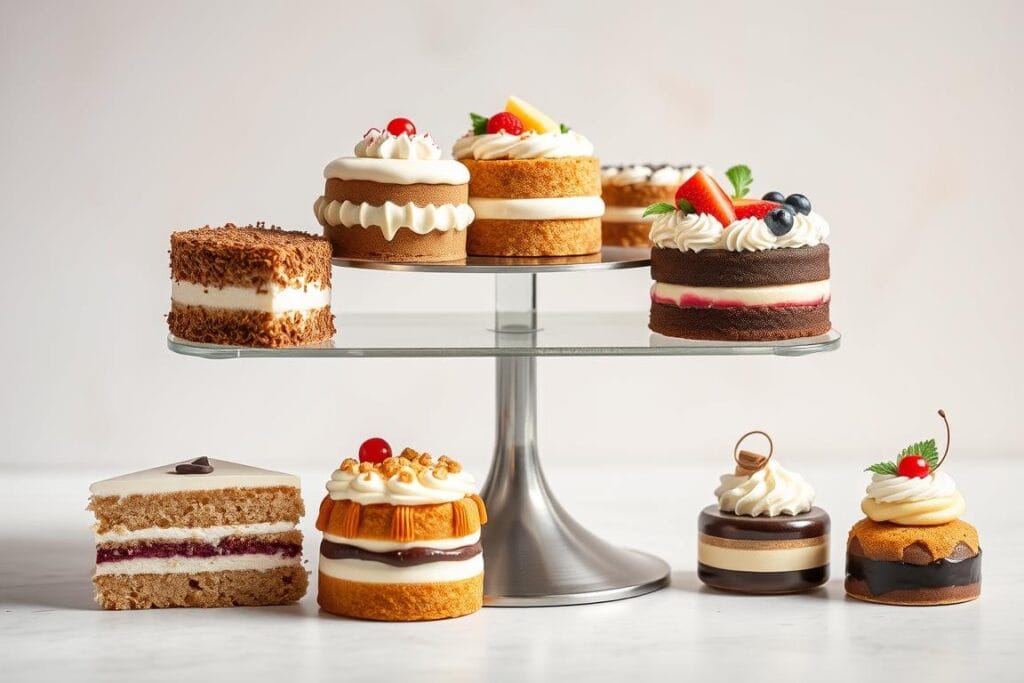
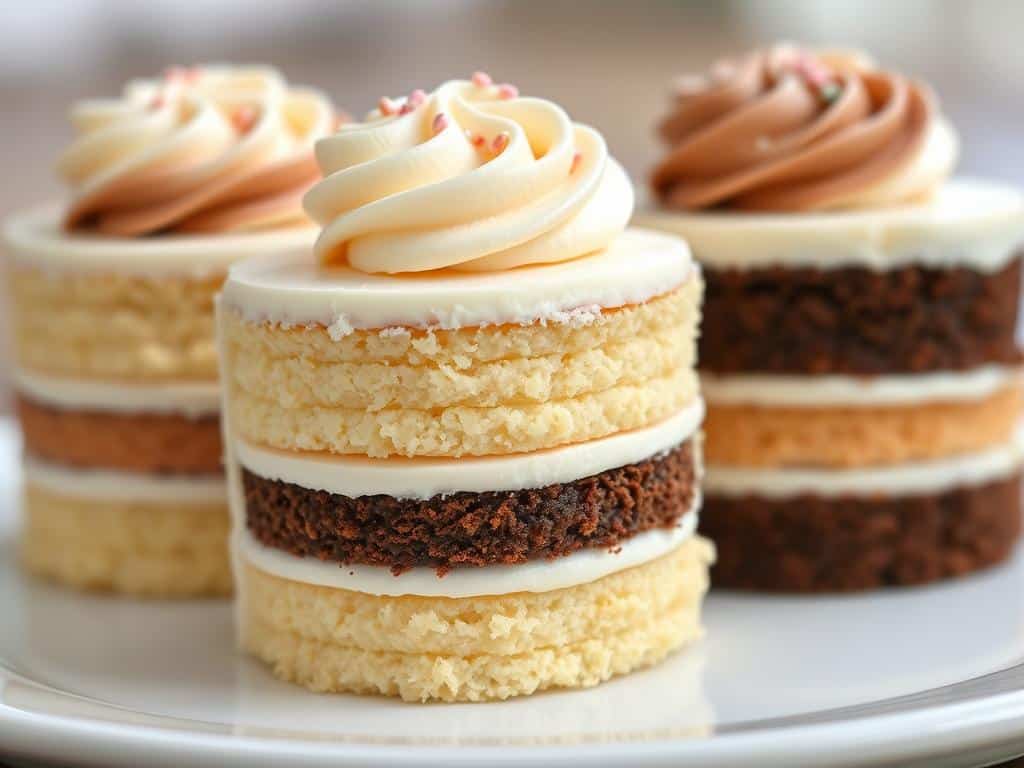
1. Layered Petite Cakes
These miniature versions of classic layer cakes feature multiple thin cake layers with frosting between each. Typically 2-3 inches in diameter, they’re perfect for showcasing intricate interior designs, such as ombré or checkerboard patterns. The multiple layers create a stunning visual when cut into and provide an ideal cake-to-frosting ratio in each bite.
Best suited for: wedding receptions, anniversary celebrations, and upscale events where presentation is crucial.
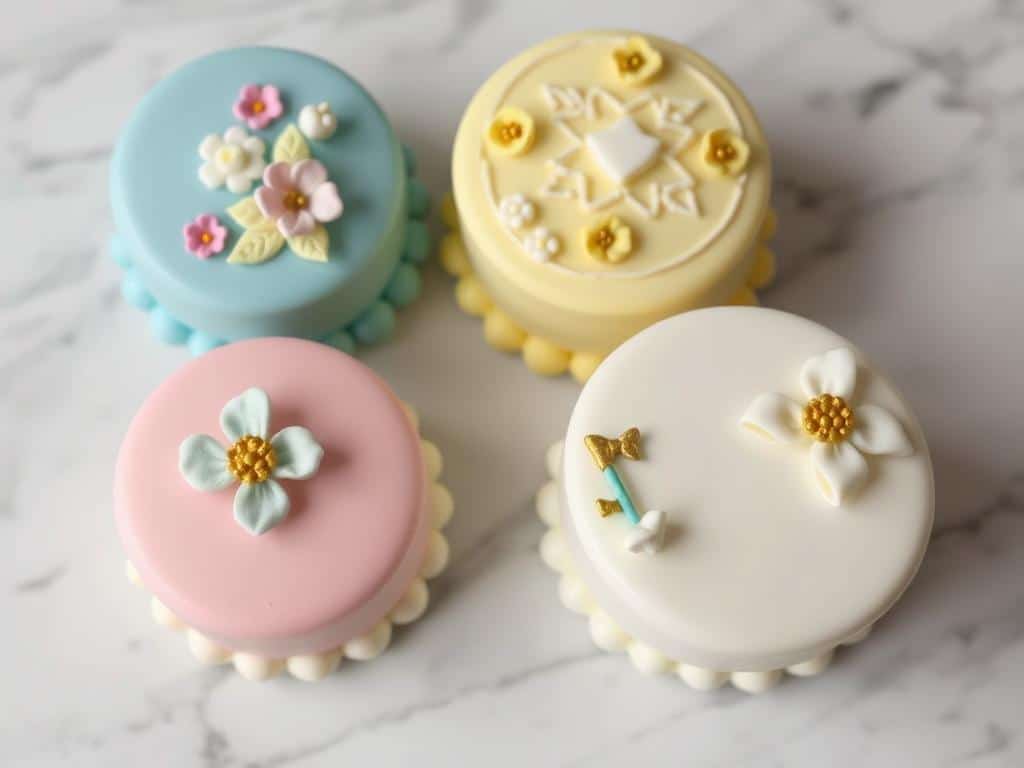
2. Fondant-Decorated Individual Cakes
These mini masterpieces showcase the art of fondant decoration in miniature form. The smooth fondant covering provides the perfect canvas for intricate designs, from delicate flowers to geometric patterns. Their uniform appearance makes them ideal for formal events where visual consistency matters.
Best suited for: formal events, bridal showers, and other occasions that require a sophisticated presentation.
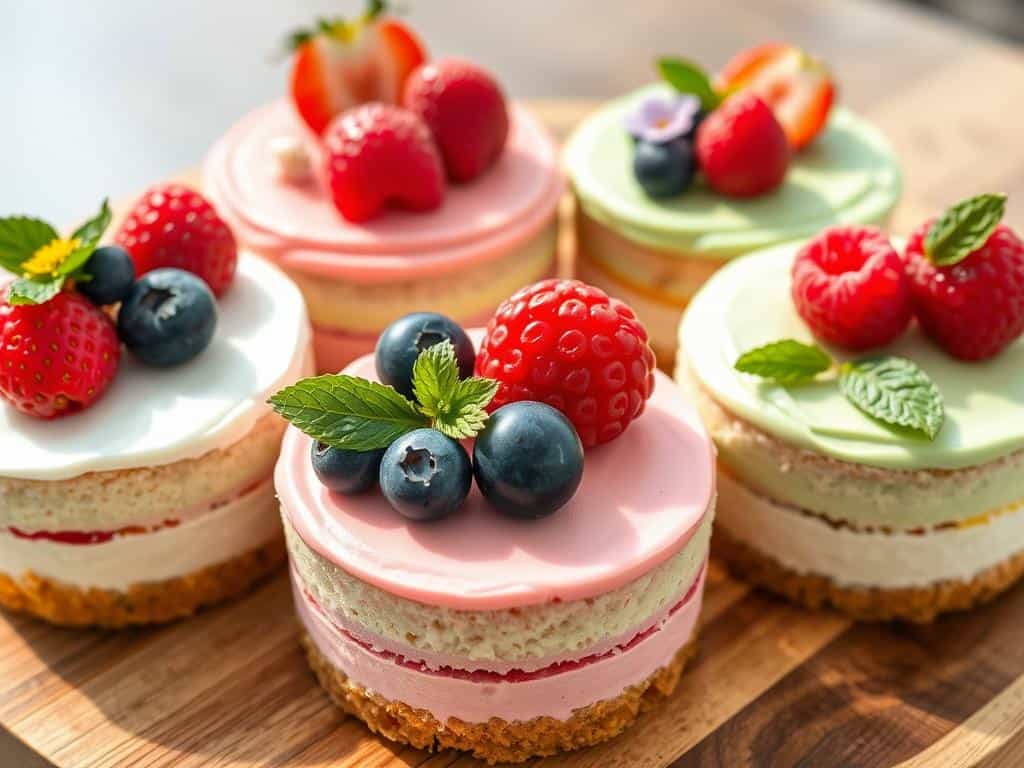
3. Vegan Petite Desserts
These plant-based delights prove that dietary restrictions don’t mean sacrificing flavor or presentation. Made with ingredients like applesauce, flax eggs, and plant-based milk, these cakes are typically topped with coconut cream frosting or cashew-based icings and garnished with fresh fruit.
Best for: Mixed-dietary gatherings, health-conscious events, and inclusive celebrations.
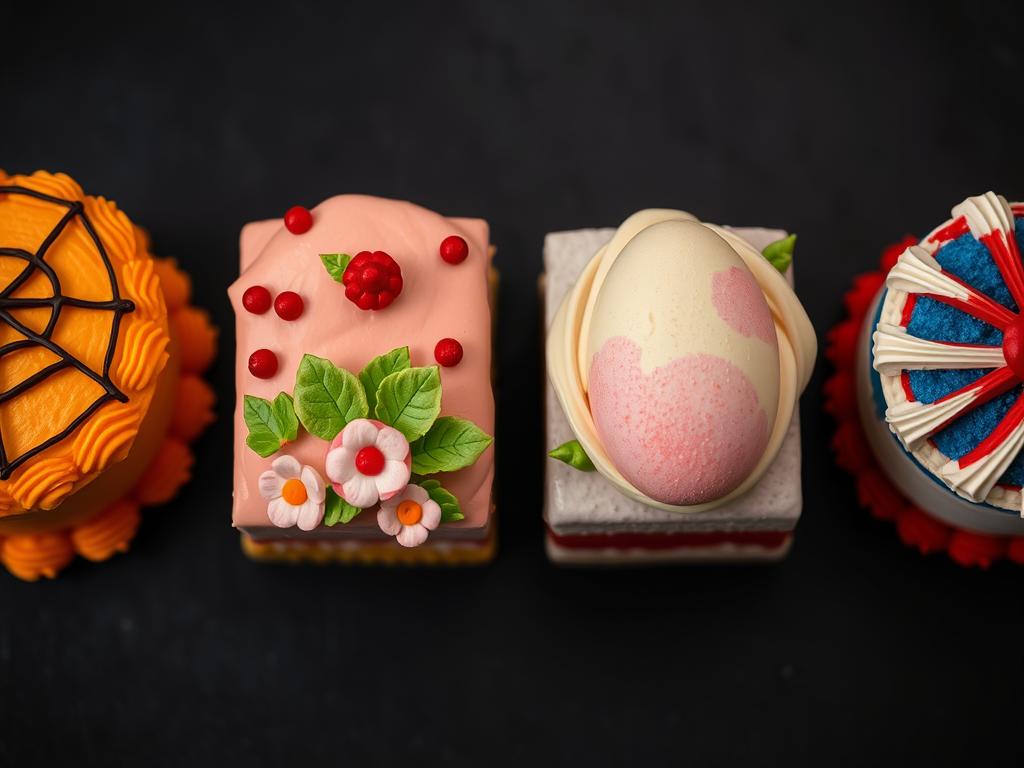
4. Seasonal Themed Treats
These festive treats celebrate holidays and seasons with themed decorations and flavors. From pumpkin spice autumn cakes with maple frosting to refreshing citrus summer varieties, these petite desserts are designed to capture the essence of the season in both appearance and taste.
Best for: Holiday gatherings, seasonal celebrations, and themed parties.
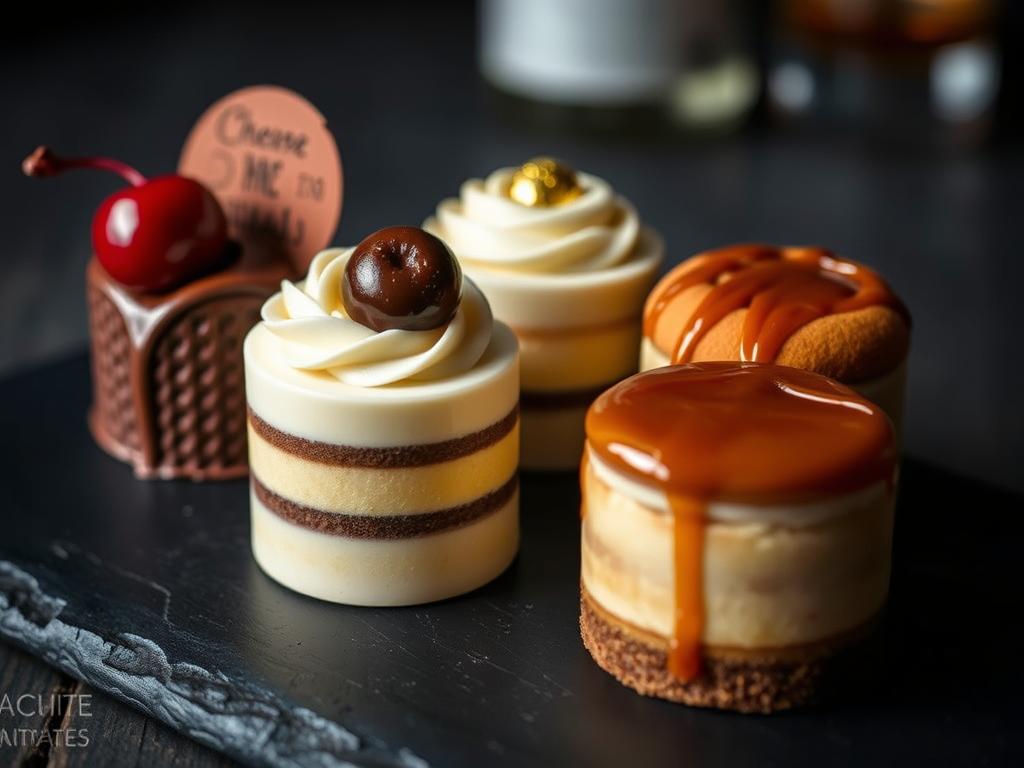
5. Boozy-Infused Petite Treats
These sophisticated small desserts incorporate spirits and liqueurs, adding an adult twist to dessert. Popular variations include rum-soaked vanilla cakes, bourbon chocolate cakes, and champagne-infused strawberry cakes. The addition of alcohol enhances the flavor and moisture, making these treats distinctly grown-up.
Best for: Adult celebrations, cocktail parties, and sophisticated gatherings.
Step-by-Step Baking Tips for Perfect Individual Treats
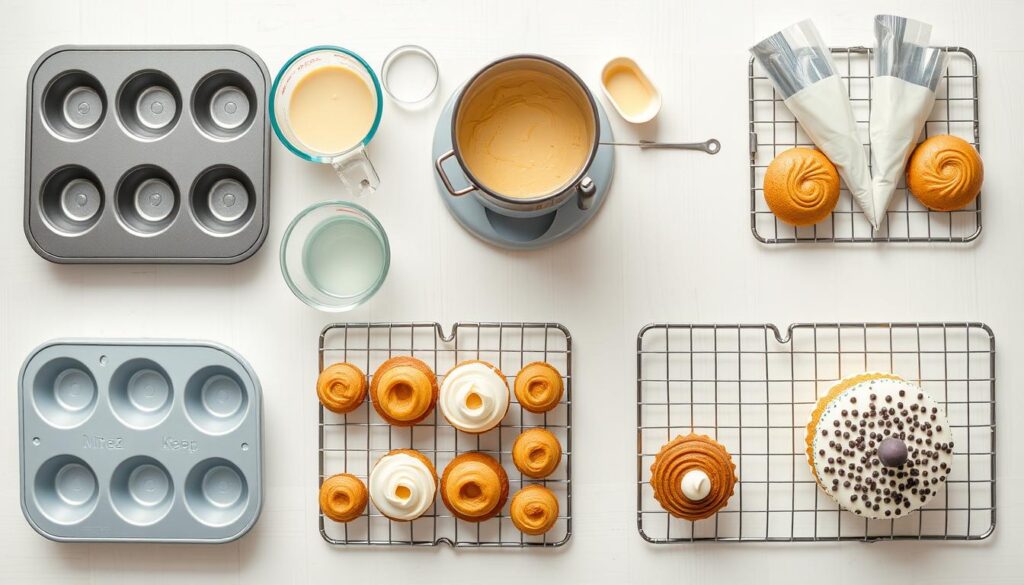
Essential Equipment
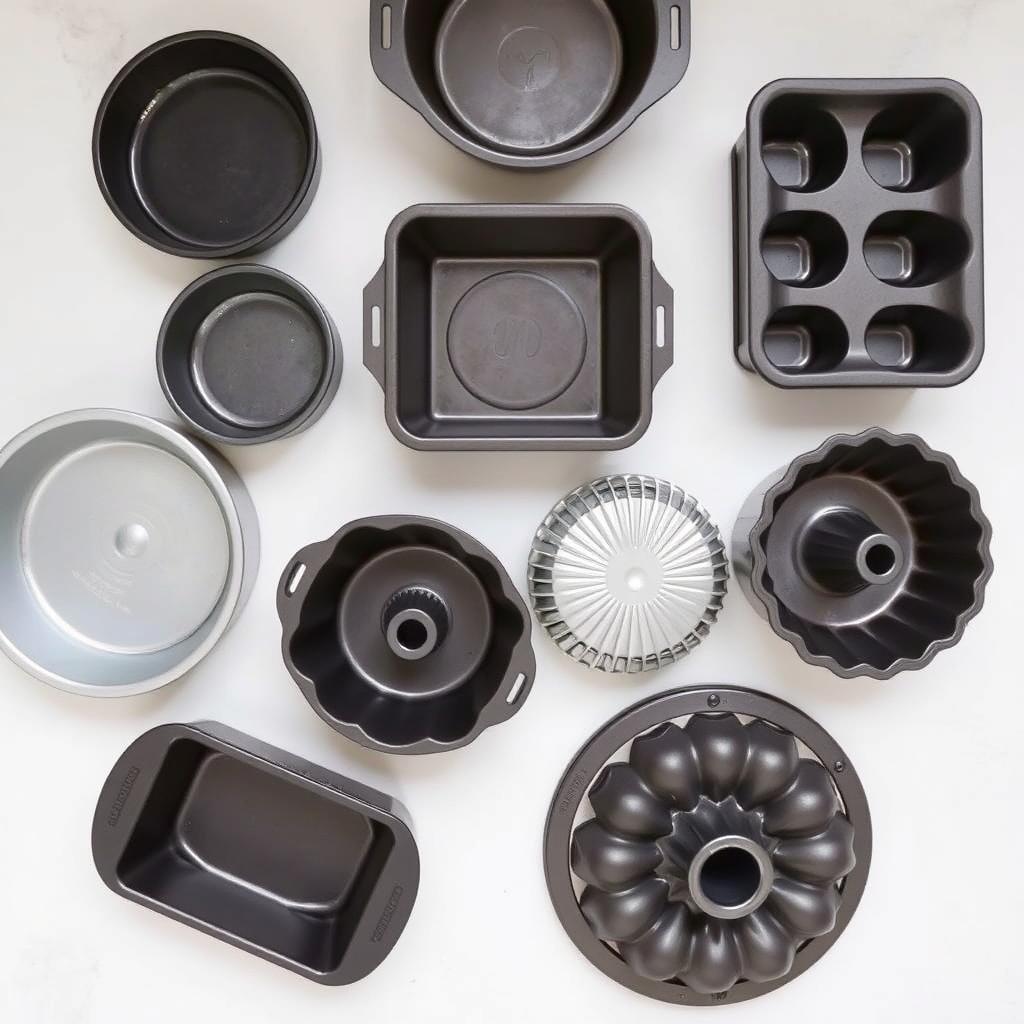
Recommended Pans:
- Individual round cake pans (2-3 inches in diameter)
- Small loaf pans (approximately 3×2 inches)
- Miniature bundt pans for shaped cakes
- Silicone molds for easy release
- Sheet pan + round cutters for the cut-and-stack method
If you’re starting, a standard quarter-sheet pan paired with 2-3-inch round cookie cutters offers the most versatility. This allows you to bake one large sheet cake and then cut out perfectly sized rounds for stacking.
Baking Time Adjustments
| Pan Type | Standard Baking Time | Small Cake Adjustment | Visual Doneness Cue |
| 2″ Round Small Pans | 25-30 minutes | 12-15 minutes | Edges pull slightly from the pan |
| Small Loaf Pans | 45-50 minutes | 18-22 minutes | The top springs back when touched |
| Small Bundt Pans | 50-60 minutes | 15-20 minutes | Golden brown edges |
| Sheet Pan (for cutting) | 30-35 minutes | 20-25 minutes | The toothpick comes out clean |
Pro Tip: Always start checking your petite treats 5 minutes before the suggested baking time. Small-sized cakes can go from perfectly baked to dry very quickly due to their small size.
Recipe Modifications
Standard cake recipes can be used for individual-sized cakes, but a few adjustments will improve your results:
- Reduce leavening agents slightly (about 25%) to prevent excessive doming
- Consider adding extra moisture through sour cream, yogurt, or an extra egg yolk
- Use cake flour instead of all-purpose for a more delicate crumb
- Mix batters less to prevent overdeveloping gluten in these small cakes
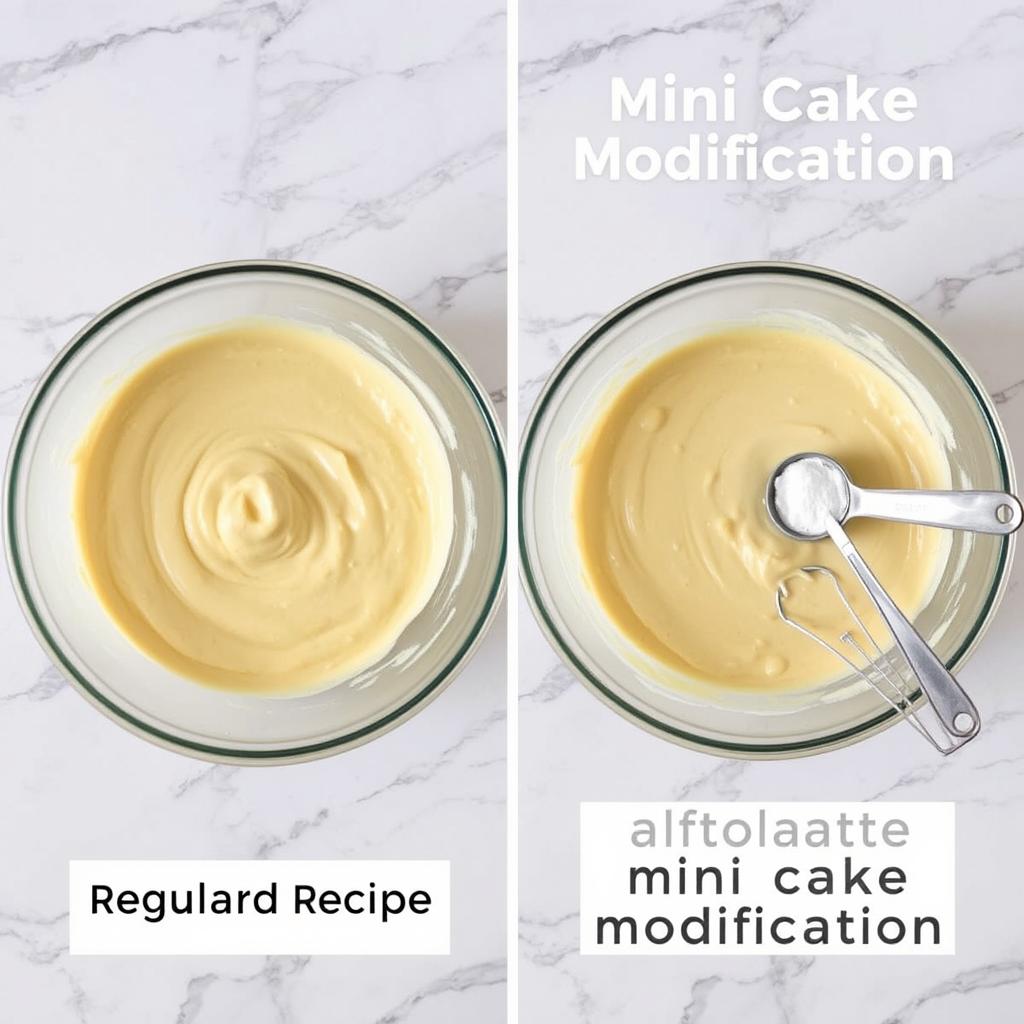
The Cut-and-Stack Method
- Bake a thin sheet cake (about 1/2 to 3/4 inch thick) on a parchment-lined baking sheet.
- Cool completely before handling to prevent crumbling.
- Use round cutters to punch out even circles from the sheet cake.
- Level the tops if necessary for even stacking.
- Layer cake with frosting between each cake round (2-3 layers work best).
- Crumb coat the entire small cake before applying the final frosting.
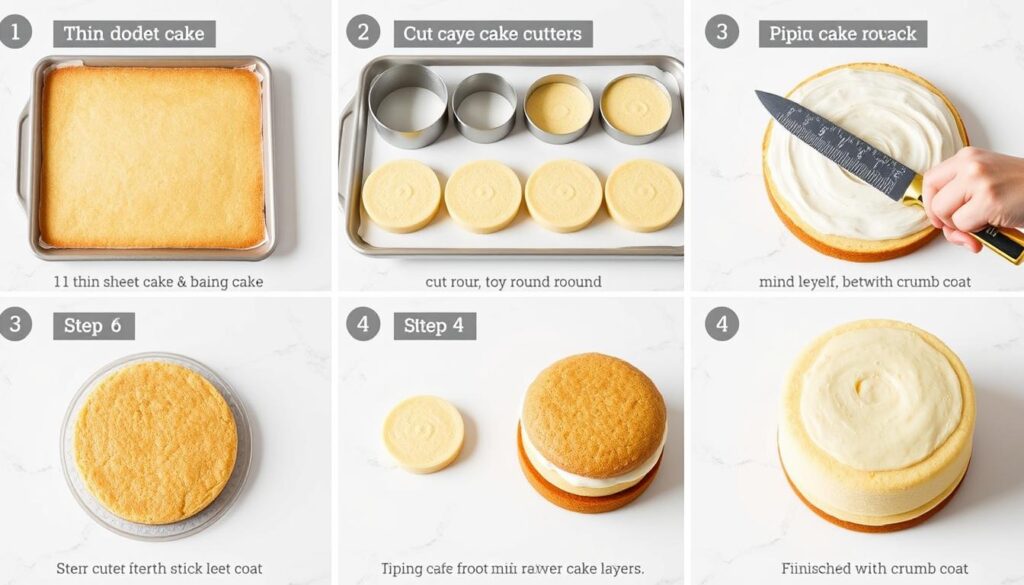
Decoration Ideas with Visual Impact
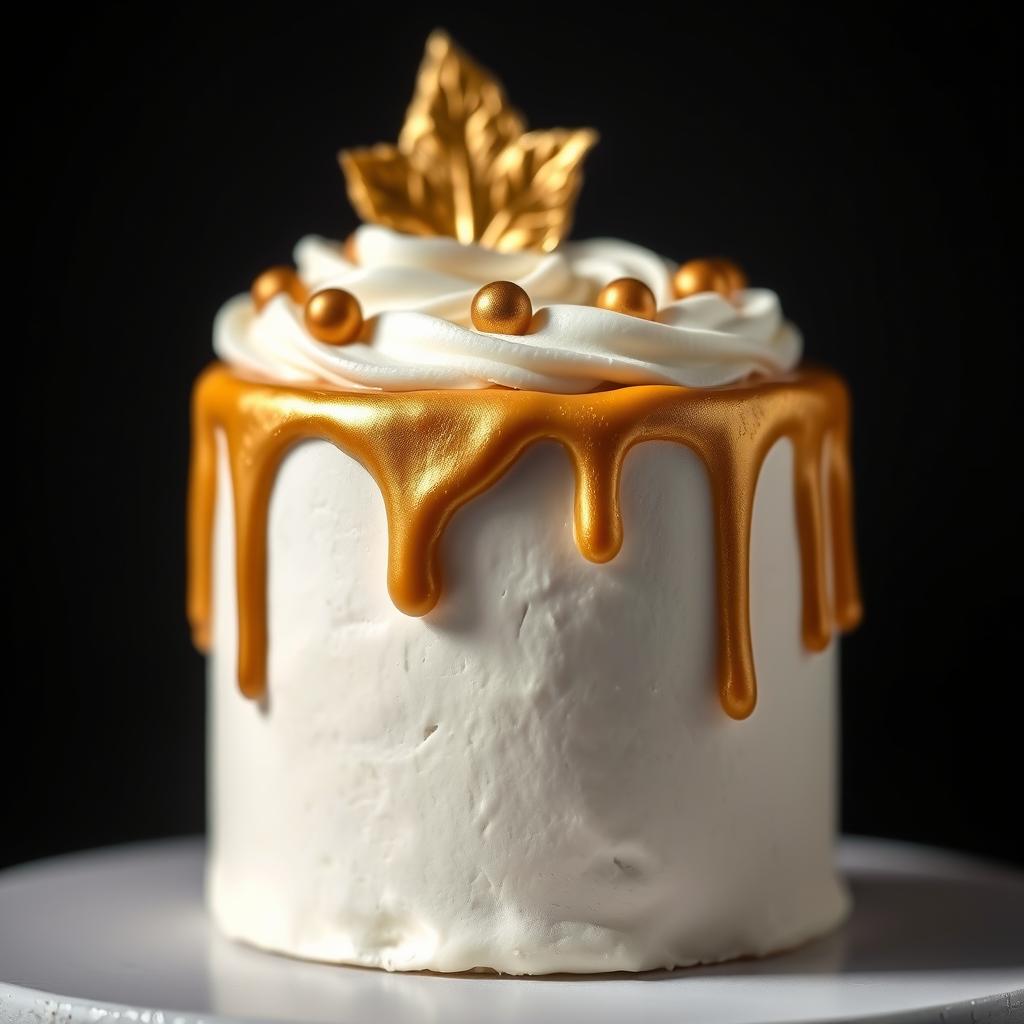
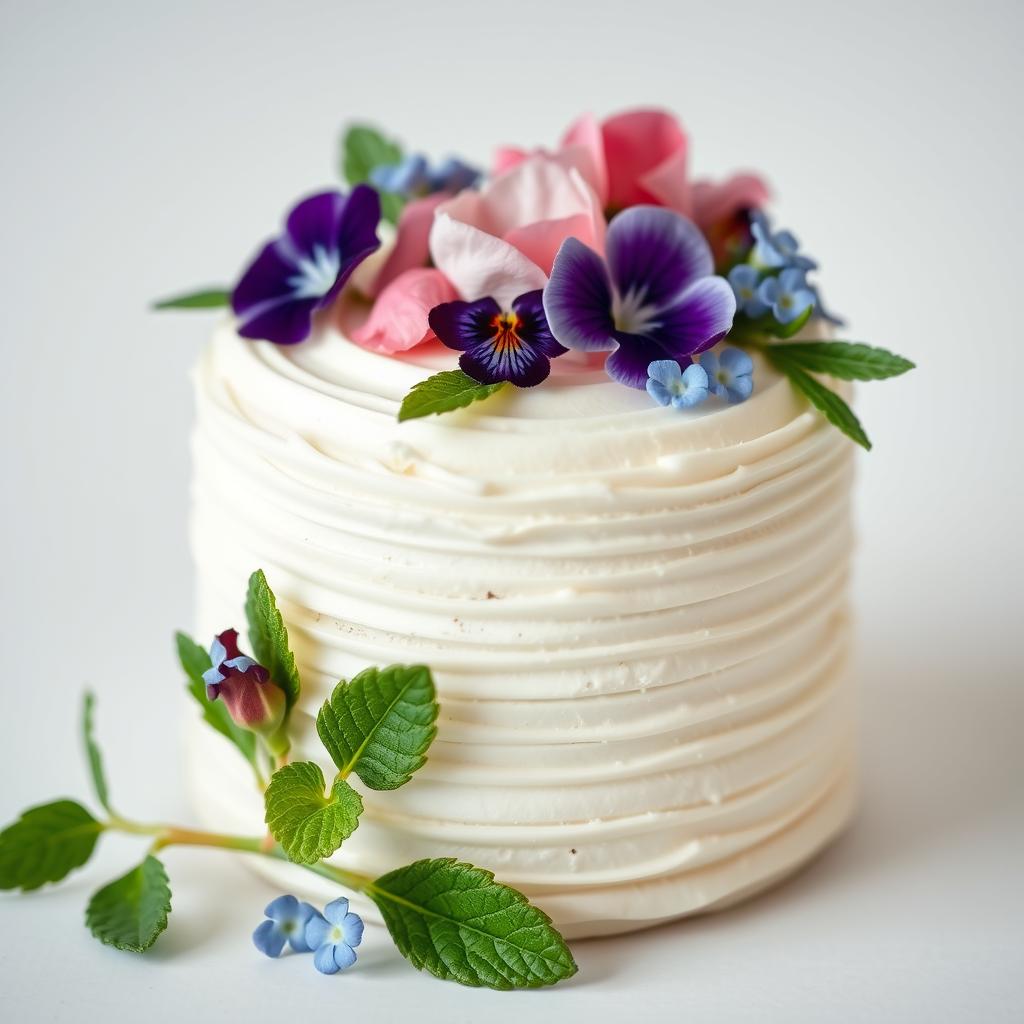
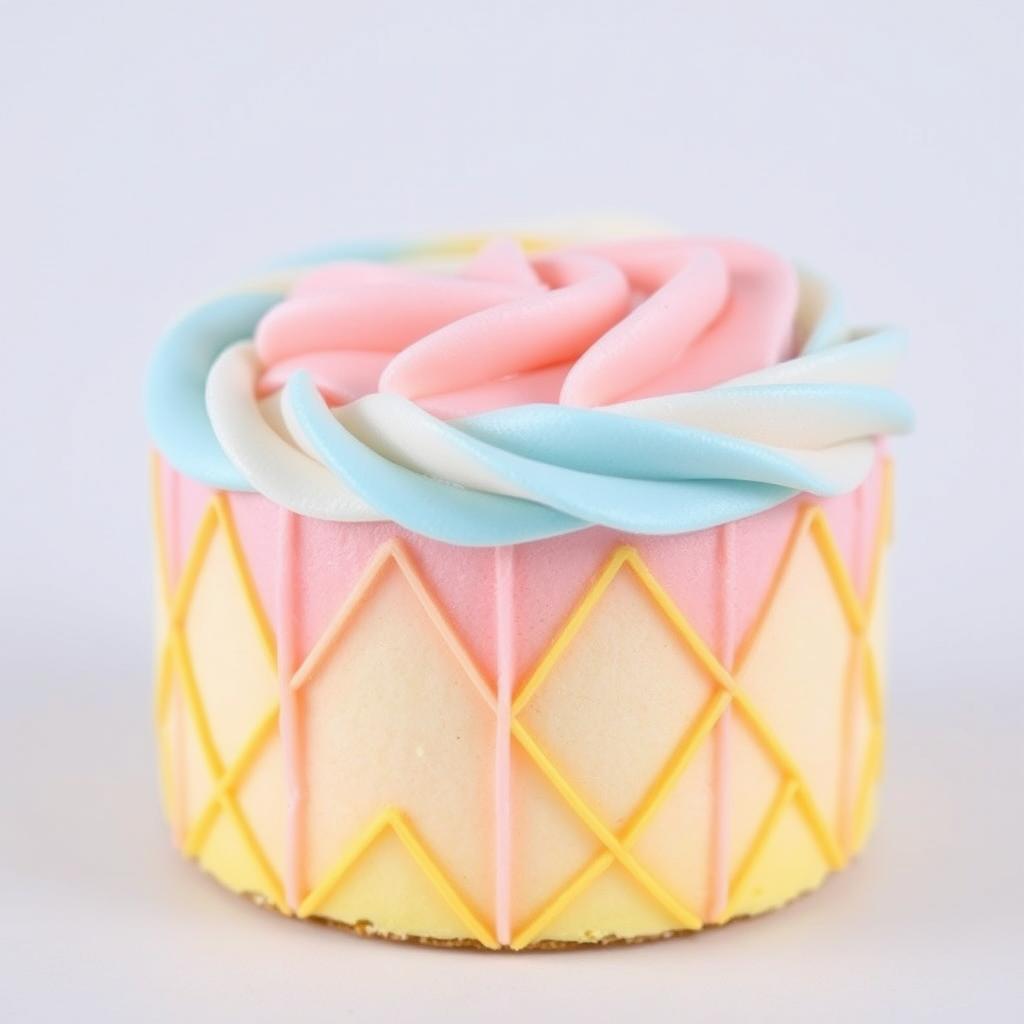
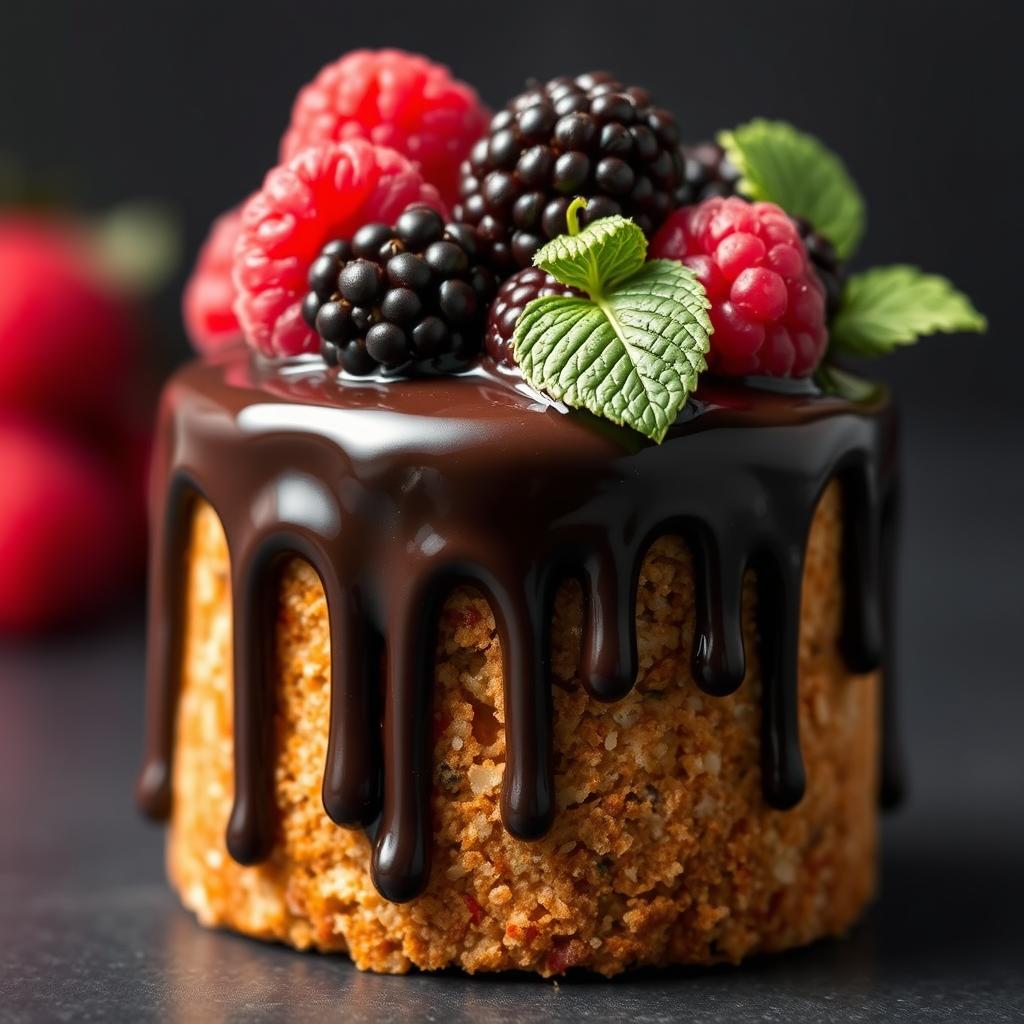
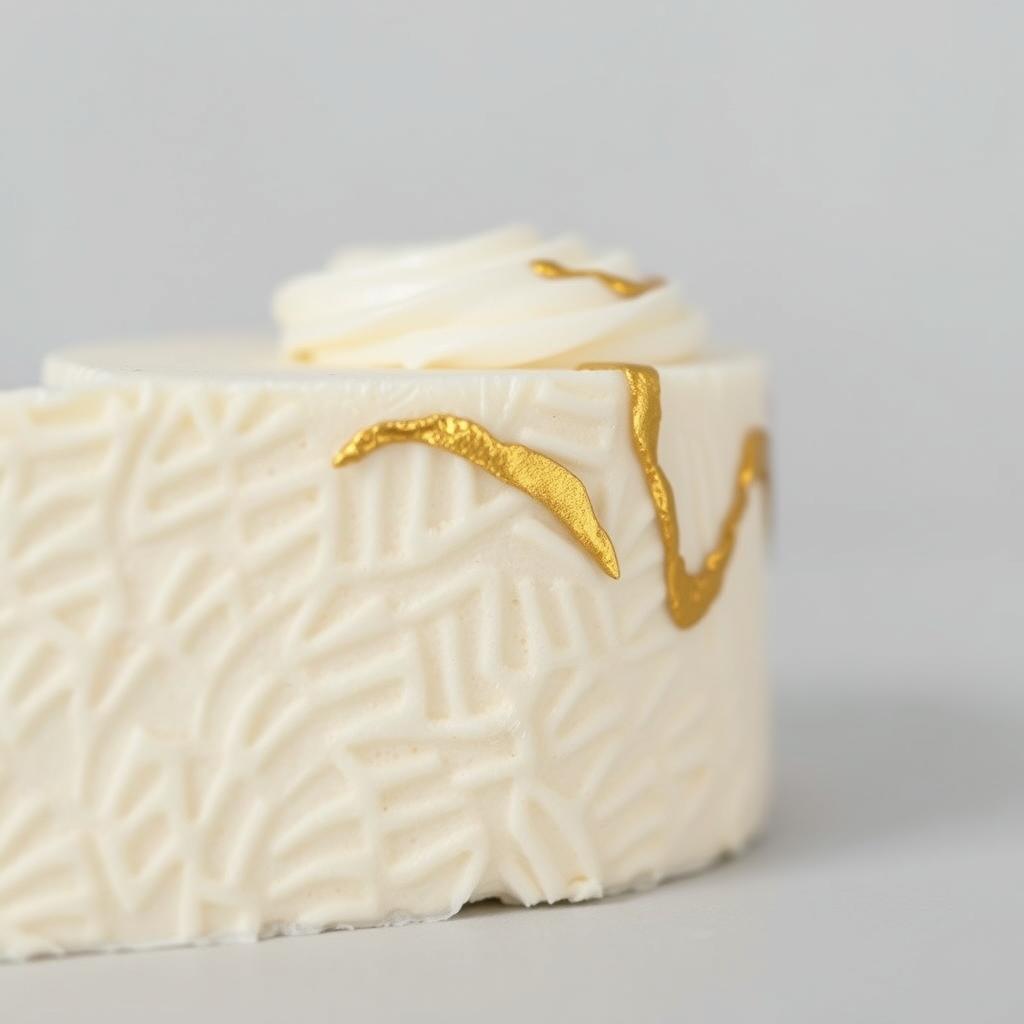
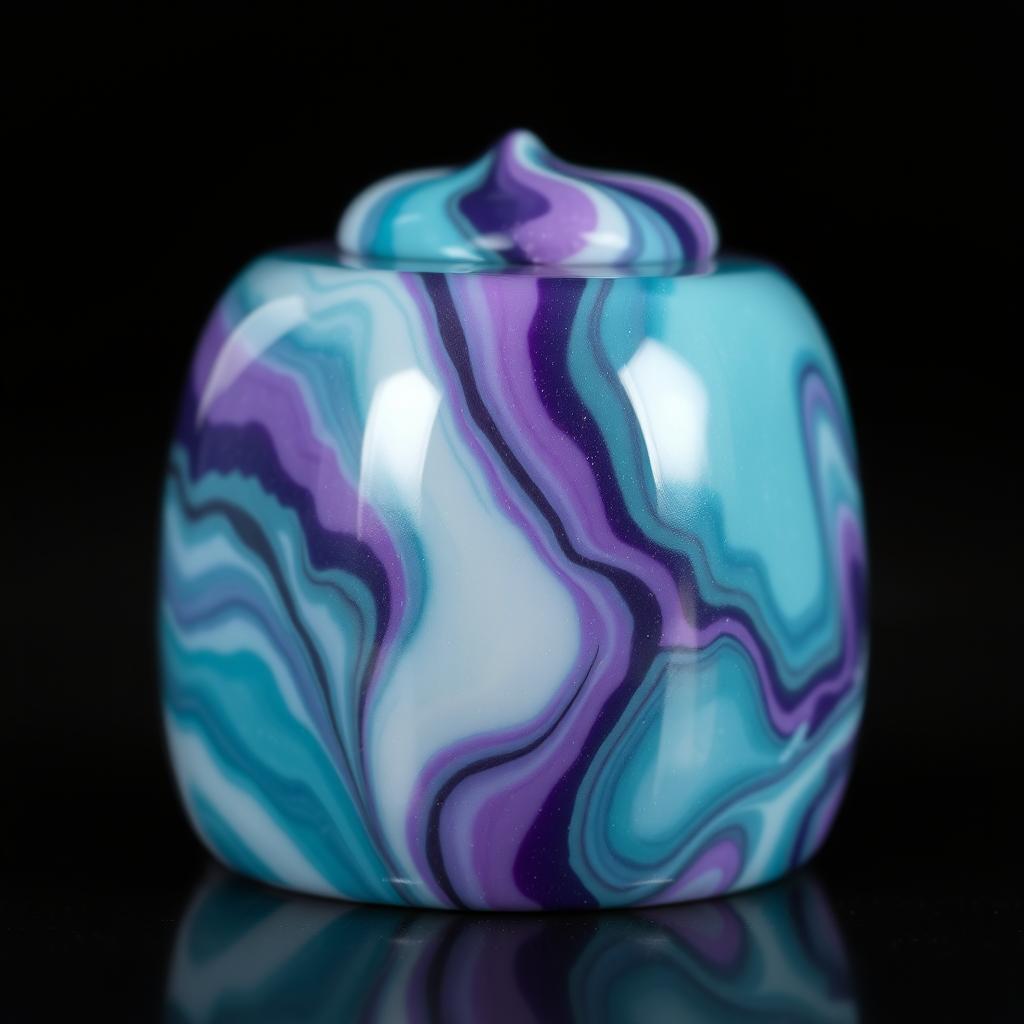
Quick Decoration Techniques
Buttercream Techniques
- Textured spatula work – create rustic, imperfect textures
- Piped rosettes – classic and elegant
- Buttercream transfers – for detailed designs
- Ombré effect – gradual color transitions
- Palette knife painting – for abstract designs
Toppings & Garnishes
- Edible flowers – violets, pansies, roses
- Fresh berries – strawberries, blueberries, raspberries
- Chocolate decorations – shards, curls, geometric pieces
- Candied citrus – lemon, orange, grapefruit
- Herb accents – mint, thyme, lavender
Special Effects
- Drip effects – ganache, caramel, colored white chocolate
- Metallic accents – edible gold leaf, luster dust
- Mirror glazes – for a stunning reflective finish
- Stenciled designs – for precise patterns
- Isomalt decorations – for “glass-like” elements
“The beauty of individual desserts is that you can experiment with elaborate decoration techniques that would be difficult to maintain over a large surface. Each petite dessert becomes its own tiny canvas for creativity.”
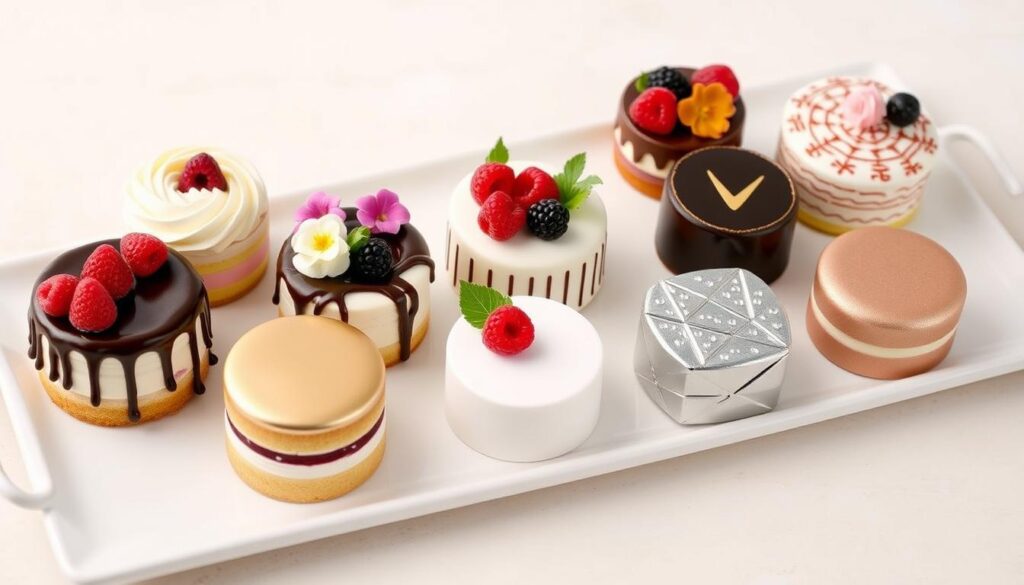
Best Occasions to Serve Individual Desserts
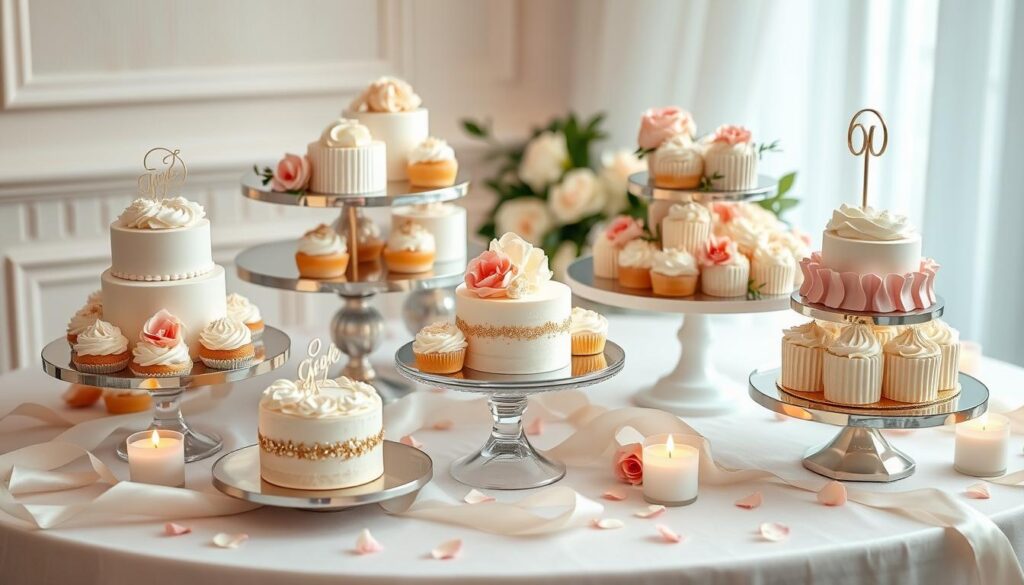
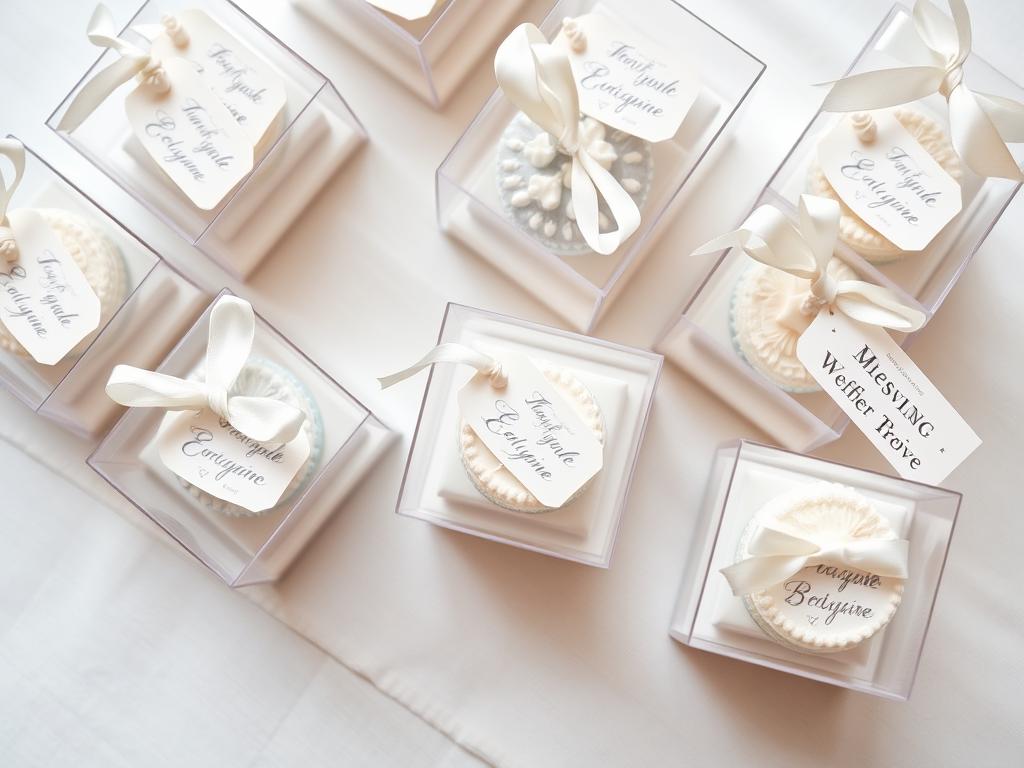
Weddings & Anniversaries
Individual desserts make perfect wedding favors or alternatives to traditional wedding cakes, allowing couples to offer multiple flavors and accommodate dietary restrictions while maintaining an elegant presentation. For anniversaries, petite treats can be personalized to reflect the couple’s journey.
Serving suggestion: Create a stunning display of individual desserts on a tiered stand, or place individual treats at each place setting as an edible favor.
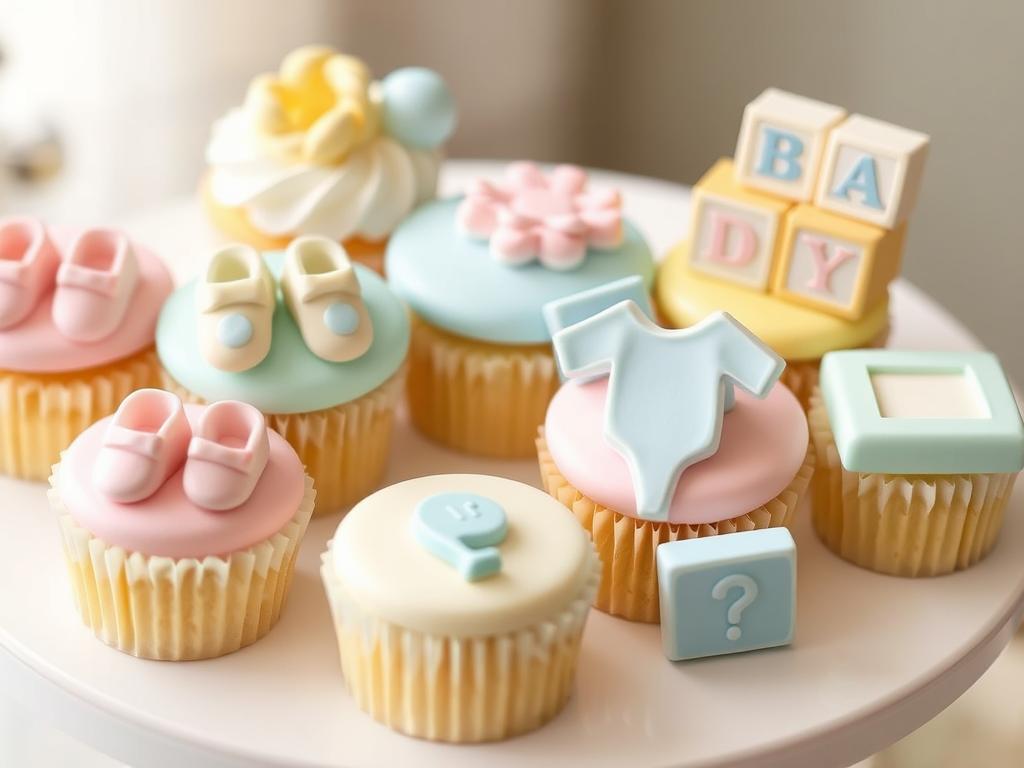
Baby Showers & Gender Reveals
Small desserts in pastel colors with baby-themed decorations make perfect shower treats. For gender reveals, individual treats can be filled with colored buttercream that’s revealed when guests cut into them – a personal moment of discovery for each attendee.
Serving suggestion: For gender reveals, serve identical-looking small treats with a surprise colored filling inside.

Birthdays & Milestone Celebrations
Individual birthday desserts allow each guest to have their celebration moment. For milestone birthdays, personalized treats can be decorated to reflect the honoree’s journey, interests, or achievements throughout the years.
Serving suggestion: Add a single candle to each petite treat for a memorable moment when everyone lights their candle simultaneously.
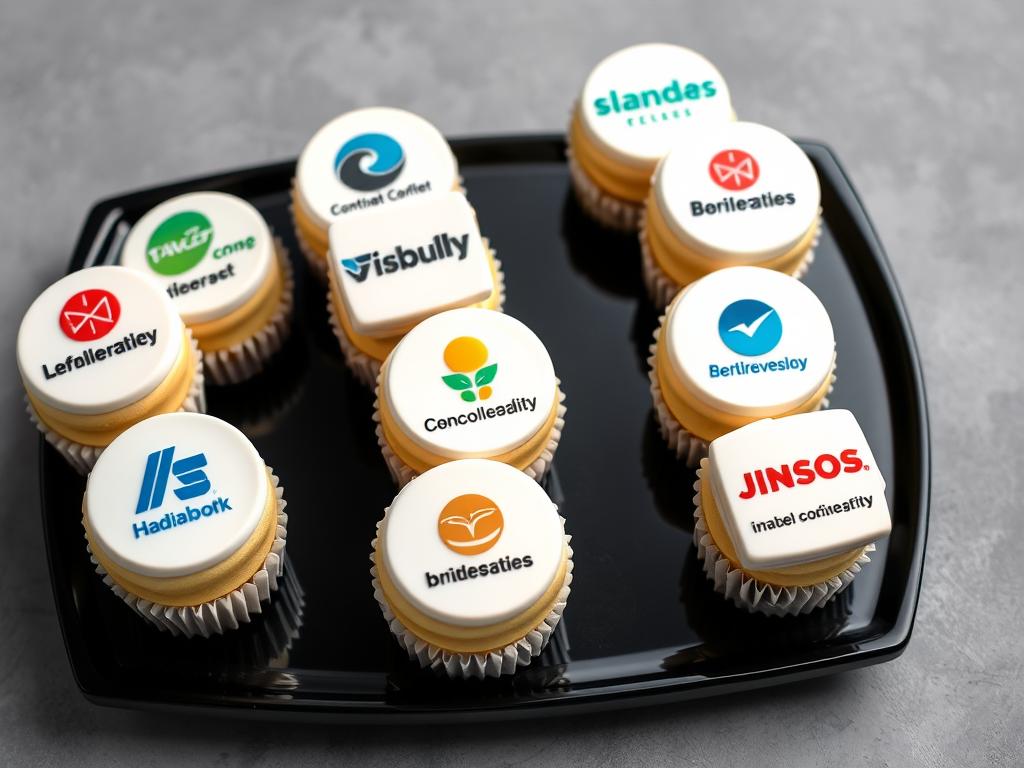
Corporate Events & Product Launches
Branded individual desserts make memorable corporate gifts or event refreshments. They can be decorated with company logos, product imagery, or campaign messaging for a sweet marketing touch that recipients will remember.
Serving suggestion: Present in branded packaging for an extra professional touch, or arrange in a pattern that reinforces brand identity.
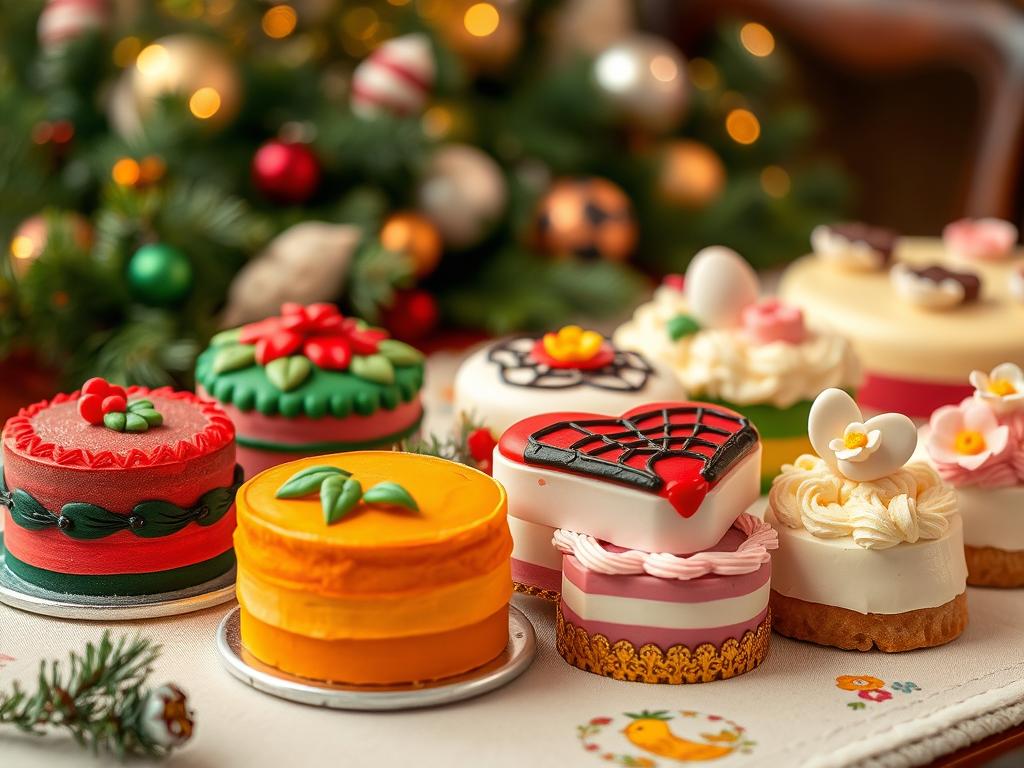
Holiday Gatherings
Seasonal small treats bring festive cheer to holiday gatherings. From Christmas and Hanukkah to Halloween and Valentine’s Day, individually-sized desserts can be themed to match any holiday celebration with colors, flavors, and decorations that are appropriate for the occasion.
Serving suggestion: Incorporate seasonal flavors that complement the holiday theme, such as pumpkin spice for fall or peppermint for winter celebrations.
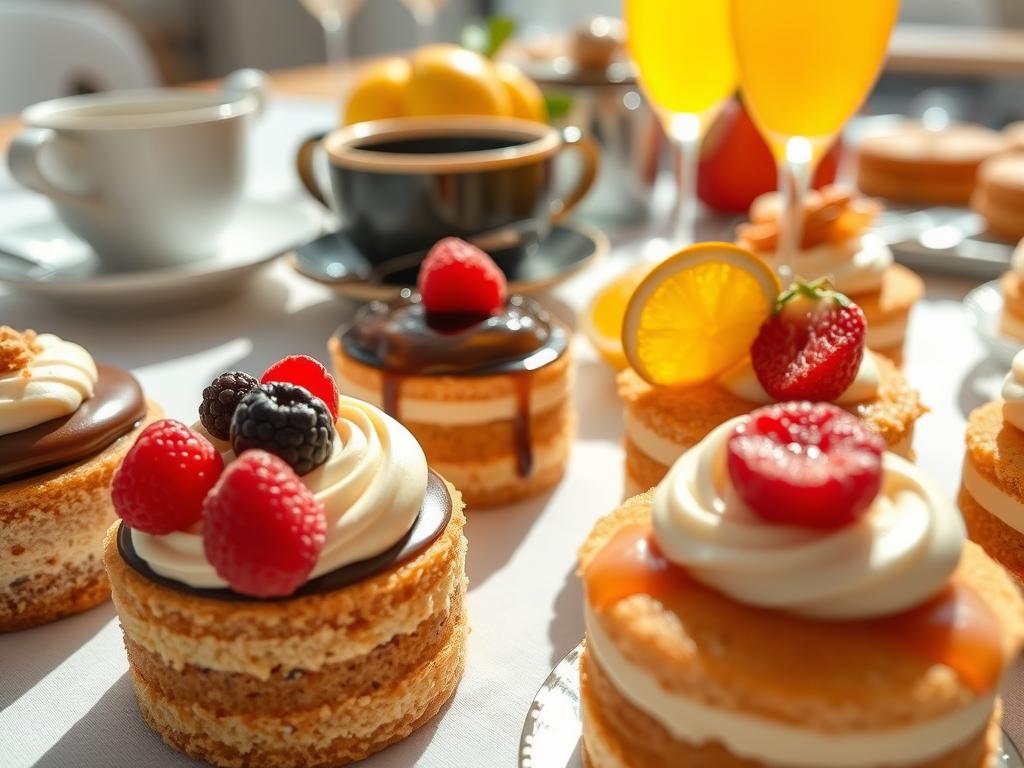
Brunches & Afternoon Teas
Individual-sized desserts are perfect companions to coffee, tea, and mimosas. For brunch gatherings or afternoon teas, lighter flavors like lemon, vanilla, and berries complement the setting, while the individual portions allow guests to sample multiple varieties.
Serving suggestion: Pair specific small cake flavors with complementary teas or coffee varieties for a curated tasting experience.
Frequently Asked Questions About Individual Desserts
How far in advance can I make these small desserts?
You can bake individual desserts 1-2 days ahead of your event. For best freshness, store unfrosted cakes tightly wrapped at room temperature, or freeze for up to 2 weeks. Finish decorating within 24 hours of serving.
What’s the ideal size for a petite cake?
The most popular sizes range from 3-4 inches in diameter for round cakes, or 2×3 inches for rectangular shapes. These dimensions provide enough cake to feel substantial while maintaining the petite appeal.
How many individual desserts should I prepare per guest?
For events where these petite treats are the primary dessert, plan for 1-2 per person. For dessert tables with multiple options, 0.75 per guest is typically sufficient (meaning 3 small cakes for every 4 guests).
How can I transport small cakes safely?
Invest in cupcake carriers with adjustable inserts or small cake boxes with inserts to prevent movement. For stacked petite desserts, insert a thin dowel through the center before transport and remove it upon arrival.
Can I scale down any cake recipe for these individual treats?
Most standard cake recipes can be adapted for small desserts, but dense cakes like pound cake or carrot cake tend to work better than very light, airy cakes which may become too delicate at a smaller scale.
Final Recommendations
These stunning petite desserts offer endless possibilities for creativity, personalization, and celebration. Whether you’re baking for a special occasion or s ant to elevate your everyday dessert game, these bite-sized treats deliver maximum impact with minimal serving fuss. The key to success lies in understanding the proper baking techniques, allowing sufficient time for decoration, and matching your individual dessert designs to the occasion.
Remember that practice makes perfect – your first batch of petite treats might not be flawless, but each attempt will improve your skills. Start with simple designs and gradually work your way up to more complex decorations as you gain confidence. Most importantly, have fun with the process and don’t be afraid to experiment with flavors, colors, and decoration techniques.
Did you enjoy this article on beautiful individual desserts? Share your creations with us on social media using #PetiteDesserts or leave a comment below with your favorite flavor combination!
Related Article: Delightful Bento Cake – Tutorial
Explore More: 13 Mini Cakes That Prove Good Things Come In Small
